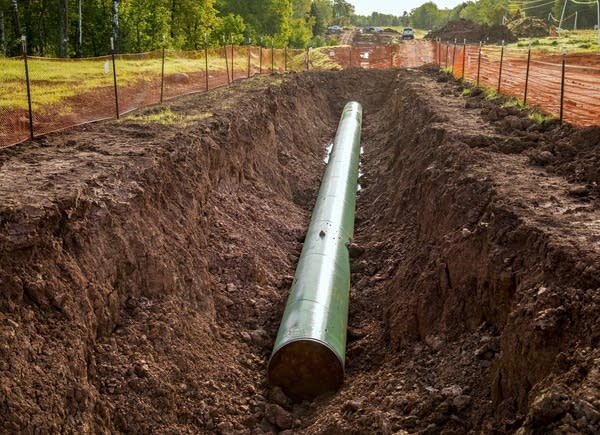Enbridge pushes Line 3 timeline back a year

A new segment of Line 3 pipeline sits in the ground on Sept. 1, 2017 south of Superior, Wis. Enbridge has pushed the estimated completion of its Line 3 replacement project across northern Minnesota back a year.
Derek Montgomery for MPR News 2017
Go Deeper.
Create an account or log in to save stories.
Like this?
Thanks for liking this story! We have added it to a list of your favorite stories.


